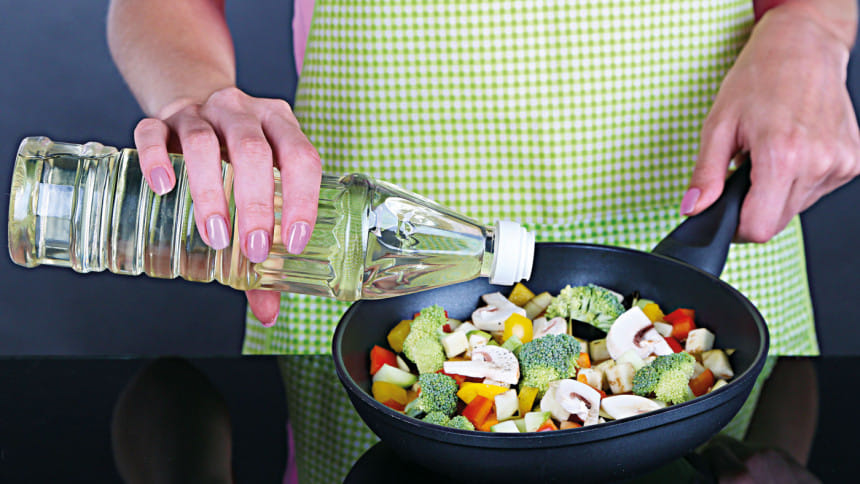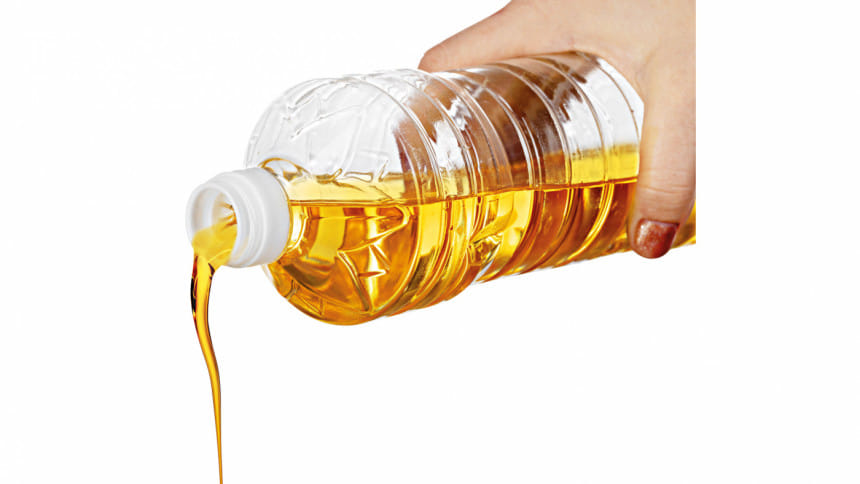Pour Perfect: Dos, Don’ts, and Best Practices

Across the globe everybody is continuously becoming aware of potential health and safety risk associated with food practice and cuisine culture. Among all the ingredients of food industry, edible oil is an essential component. It is said that Bangladesh is not self-sufficient in terms of producing oil crop, though earlier, significant portion of people exclusively relied home produced oil crop, most notably mustard oil. As Bangladesh is graduating to developing countries' rank, increasing awareness regarding food practices has become a key concern.
Bangladesh imports most of its edible oil primarily from Indonesia, Malaysia, Brazil, and Argentina, while domestic oilseed production meets only a small fraction of demand. The market includes both branded and unbranded segments, with branded oils gaining traction due to quality assurance. Demand for fortified oils has increased due to regulations and health campaigns. Government oversight of imports, pricing, and fortification aims to ensure quality and curb manipulation. However, global crude oil price fluctuations often drive local price hikes. With better infrastructure and quality control, Bangladesh has potential for exporting edible oils and value-added products.
With regard to sustainable packaging, certain prominent brands are leading from the front. It may be noted that loose edible oil is still routinely consumed by certain portion of the people despite the sustained campaign by BSTI and Consumer Right association (CAB), reason behind durability of the loose oil might be economic. But nowadays government agencies have put ban on sale and usage of loose edible oil and are encouraging to consume healthy and nutrient fortified edible oil.
A large number of domestic edible oil companies are paving the way for healthy and sustained usage of food practices with regard to packing and nutrition. One of them, TEER, is the first brand to fortify soybean oil with vitamin A, D, and E. The specially designed PET bottle also eases the opening with one single twisting, particularly meant for individual client, while wholesale packaging such as drum, tin and plastic are used for corporate. In both cases, they maintain top-notch nutrition standard.
Oil manufacturing companies are leveraging technology, fortification, and innovation to provide healthier, high-quality, and safe edible oils for consumers. Here's a brief guide on "Dos and Don'ts" for consumers to get the maximum health benefits while integrating edible oils into their diet.

Dos:
1. Choose the Right Oil for Cooking Needs:
Use oils with a high smoke point (e.g., sunflower, canola, or rice bran oil) for frying or high-heat cooking.
Opt for oils with stronger flavors (e.g., olive or sesame oil) for sautéing, dressings, or low-heat cooking.
2. Rotate Oils:
Incorporate a variety of oils (e.g., mustard, olive, coconut) to benefit from different nutrients and fatty acids.
3. Measure Your Oil:
Use a controlled amount to prevent excess fat intake. A teaspoon or two is often sufficient for most recipes.
4. Store Properly:
Keep oils in a cool, dark place and ensure bottles are tightly sealed to prevent oxidation.
Use smaller bottles for oils prone to rancidity, such as flaxseed or walnut oil.
5. Monitor Shelf Life:
Check expiration dates and discard oils that smell off or have changed in texture or color.
6. Dispose Used Oil Correctly:
Allow oil to cool after cooking and discard it in a sealed container or designated disposal site to avoid environmental harm.
7. Opt for Cold-Pressed Oils When Possible:
Cold-pressed oils retain more nutrients and are less processed, making them a healthier choice for non-heat uses.
Don'ts:
1. Don't Reuse Oil Excessively:
Avoid reusing cooking oil multiple times, especially after deep frying, as it can form harmful free radicals and trans fats.
2. Don't Overheat Oil:
Heating oil beyond its smoke point can produce toxic compounds and unpleasant flavors. Avoid letting oil smoke during cooking.
3. Don't Mix Different Oils:
Mixing oils with different properties can alter their stability and nutritional value.
4. Don't Use Oil as the Sole Source of Fat:
Balance your diet with healthy fats from nuts, seeds, avocados, and fatty fish.
5. Don't Use Oil Past Its Best-Before Date:
Rancid oil can harm your health and negatively impact the flavor of your food.
6. Don't Store Oil Near Heat or Sunlight:
Exposure to heat and light can degrade oil quality, causing it to go rancid faster.
7. Avoid Overconsumption
As food practices go through transformation over time, global supply chain also equally determines kitchen essentials, notably edible oil. For the sake of growing demand of the rising population in Bangladesh, brands are not merely driven by profit motive but also equally preoccupied with delivering healthy, eco friendly and sustainable edible oil.

 For all latest news, follow The Daily Star's Google News channel.
For all latest news, follow The Daily Star's Google News channel. 



Comments